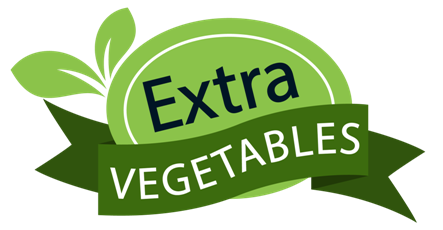There are many diets available. Some are designed for weight loss, lowering cholesterol, gaining weight, living a healthier and long life, and so on.
Diets are best described as a fixed plan of drinking and eating where the amount and type of food are planned out to follow a particular lifestyle or achieve weight loss.
Regardless of the reason for the kind of diet one chooses, we must find the one that best fits our needs and provides the optimum and wholesome benefits for our body, one of which is super greens supplements. Check out and learn more about the world’s FIRST optimized powdered vegetable supplement for a healthy body and mind.
If you’re looking for the best diet for autoimmunity or you’re confused with the available options, below are the different types of diets you can choose from to achieve your goals:

Paleo Diet
It’s a dietary plan that consists of foods similar to the Paleolithic era. Typically, it includes lean meats, seeds, nuts, vegetables, fruits, and fish. These are foods that can be obtained by gathering and hunting in the past.
Some of the benefits of the paleo diet include:
- Less inflammation
- Sustained and increased energy
- Improved heart health
- Increased insulin sensitivity
- Weight loss due to low sugar and carbohydrate intake
Ultra Low-Fat Diet
The typical low-fat diet offers about 30% of calories every day as fat, but an ultra-low-fat diet usually restricts fat consumption to below 10% of the calories daily. The reason behind it is that its proponents believe that 30% isn’t low enough, so more fat must be restricted for weight loss and gain some health benefits. It’s considered a high-carb diet because one mostly consumes plant-based foods and a controlled amount of animal products.
The benefits of an ultra-low-fat diet are:
- Can improve risk factors for some heart conditions, including high blood pressure, high cholesterol, and inflammation
- This may lead to an improvement in type 2 diabetes and slow down the progression of multiple sclerosis.
- Promote weight loss, which is especially useful among the obese
Mediterranean Diet
It’s a traditional diet from the Mediterranean during the 1950s and 1960s. In this era, this diet usually contains more processed food and red meat. Common in Western countries, the Mediterranean diet is known for including extra-virgin cold-pressed olive oil daily. It also has small amounts of sugary foods and eggs as well as lots of fruits, nuts, cereals, vegetables, and legumes.
Below are the benefits of the Mediterranean diet:
- Sustainable, healthy weight loss diet
- Controls blood sugar levels
- Based on a study, the Mediterranean diet helps with depression as it may protect against developing any depressive symptoms in older age.

Atkins Diet
It’s a popular low-carb weight loss diet whose proponents believe that it can shed a particular amount of pounds from consuming fats and protein in any amount.
The Atkins diet focuses on controlling the body’s insulin levels, with the reason that ample amounts of refined carbs lead to a rapid fall and rise in insulin levels. Once your insulin levels go up, it triggers the body to conserve energy from the food eaten. So, the chances that the body will use stored fats as an energy source are less.
The Atkins diet may also help you get rid of your excess weight, which can reverse the risk factors for diabetes and cardiovascular diseases.
Zone Diet
It’s a low glycemic load meal plan wherein proteins, carbohydrates, and fats are limited to 35% to 45% of the calorie intake daily. When it comes to the zone diet, two-thirds of the meals are colorful fruits and vegetables.
Carbohydrates with a low glycemic index are consumed, and rice, potatoes, and bananas, which have a glycemic index, are prohibited. Like other diets, the Zone diet promotes weight loss and reduces appetite.
The other benefits of a zone diet include reducing diet-induced inflammation and reducing the risk of chronic diseases.
Vegetarian Diet
It’s a dietary plan in which you won’t eat meat, poultry, and fish. Instead, a vegetarian diet often consists of plant-based foods such as fruits, grains, and vegetables. Most people choose this kind of eating for personal, religious reasons, and ethical concerns, like animal rights.
When compared to a vegan diet, some of the benefits of a vegetarian diet are the following:
- Reduce metabolic syndrome risk
- Improve insulin resistance
- Hypertension management as consuming plant-based diets may help reduce high blood pressure.
- As the vegetarian diet is lower in cholesterol and saturated fat, it results in a low risk of heart disease, which promotes better heart health.
- Weight control and weight loss as you’ll generally take in fewer amount of calories. Just make sure to avoid too many unhealthy carbs like white bread and pasta.
Vegan Diet
A type of vegetarian diet, the vegan lifestyle excludes the use or consumption of any products that come from animals. Vegans don’t eat meat, poultry, fish, or any animal products such as eggs, honey, dairy, or gelatin.
Some of the vegan diet’s benefits are as follows:
- Low risk of heart disease
- Low blood sugar levels
- High intake of beneficial nutrients as the vegan diet heavily relies on foods such as seeds, nuts, peas, beans, vegetables, fruits, and whole grains.
- Weight loss because it includes foods that are low in saturated fats and rich in fiber
South Beach Diet
The South Beach diet, which centers on changing one’s overall eating habits, highly recommends consuming lean protein, good carbohydrates, and healthy fats. Note that carbohydrates are eliminated so individuals can only eat healthy meals every day.
One of the benefits of a South Beach diet is that it promotes a healthier lifestyle, which results in better well-being.
Ketogenic Diet
Popularly known as the Keto diet, it’s a high-fat, low-carb diet that reduces carbohydrate intake and replaces it with fat. As a result, carb reduction puts the body in a metabolic state referred to as ketosis. Once it happens, your body can be efficient at burning fat for energy.
The Keto diet’s benefits may include:
- Low HDL cholesterol levels, blood sugar, and blood pressure
- Improved insulin sensitivity
- Weight loss
Bottom Line
With the types of diets available in today’s market, not all are suited for everyone. If you want to know the right diet for you, make sure to understand your body type and determine your needs and health goals. It’s also essential to get approval from a dietician and consult your doctor before trying any meal plan.
To get the best results from your diet, supplement your nutrition plan with regular workout sessions.

